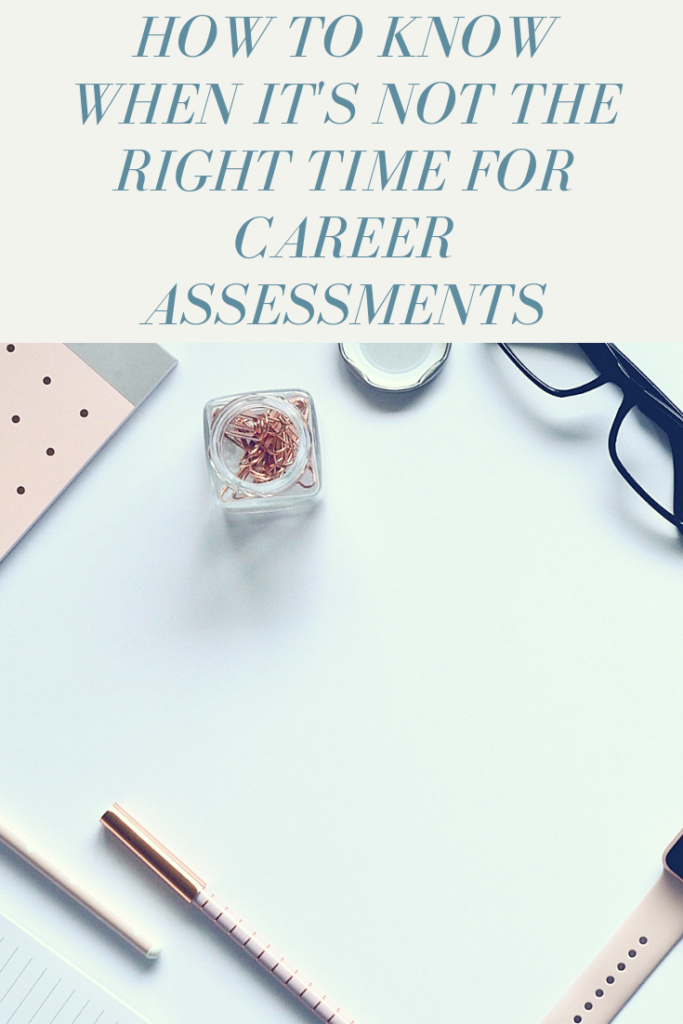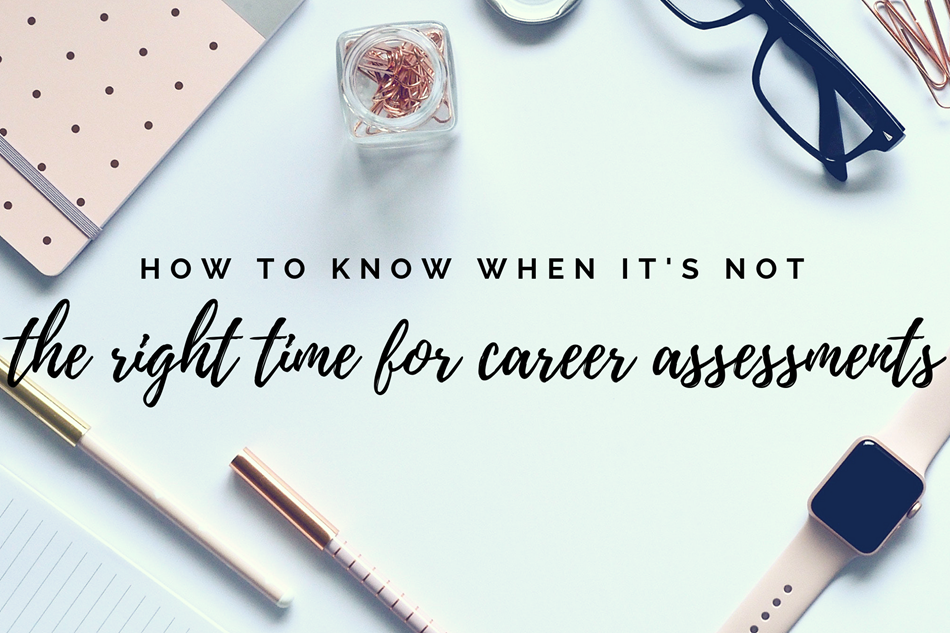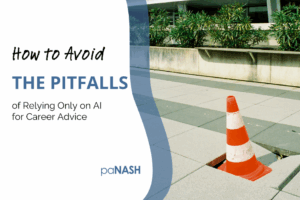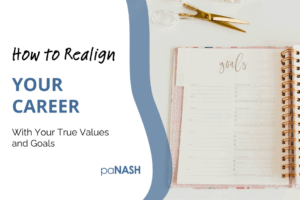|
|
Let me preface this post with the fact that I believe career and personality assessments can be very useful tools when used properly and at the appropriate time.
I felt the need to state this upfront after I recently commented on a popular comedian’s spoof of the Enneagram. I thought his spoof was hilarious because I constantly hear people saying, “Oh I’m this way because I’m a 5,” (or whatever number they are on the spectrum). As if everyone knows what every # represents!
Because I’m a career coach, I received a little criticism for my support of the comedian’s post.
This criticism gave me the green light to write this blog post. It’s one I’ve been wanting to write for some time.
In the same week of coming across the Enneagram spoof, I met with a potential client who’s deciding which career coach to hire. She mentioned to me how one of the other career coaches she talked with wanted to start her off with several batteries of assessments.
I explained to her how my approach is different. When I told her why I don’t use a lot of career assessments, I could see the relief in her face. Her response was, “Thank goodness!”
My personal philosophy on career assessments
My services are geared toward those who are mid-career and are looking to make a career change. They’re tired of being treated like a number in their current job or company.
The last thing I want to do is make them feel even more like a number. (Or some kind of code they can’t remember.)
Instead, I want them to feel heard.
And what many of them are saying is,
“I’ve done assessments in the past and didn’t find them helpful at all.”
Also, I’ve noticed two major issues with doing career assessments when working with my target market.
Issue #1
First, when clients who’ve been in one job or industry for a while (like most of my clients have been) and are wanting to make a career change, they’re mindset is so accustomed to and entrenched in their current role.
When this is the case, their assessment results become skewed.
They’re responding to questions based only on what they’ve been used to for several years. Therefore, their results often point toward a suggestion to pursue the same kind of work they’re trying to leave.
This can be very disappointing and frustrating for these clients. They feel like the assessments are telling them they’re limited in their value and abilities and have very few options.
This makes them feel even more stuck in their careers when their goal is to get unstuck!
Issue #2
Second, the assessments designed to suggest possible career options don’t include all the newly-created jobs available in today’s job market.
Because job creation is happening so quickly due to rapid advances in this age, these assessments can’t keep up in order to provide a full picture of one’s potential.
And they don’t include quickly growing alternatives such as gig economy roles, side hustles, “solopreneur” opportunities, and more.
Because of this, many career assessments can be very limiting.
By the time my clients come to me, they’ve felt the negative effects of the limiting beliefs they’ve already imposed upon themselves. They don’t need anything else to limit them right now.

Nobody wants to be treated like a number
My focus is helping people pursue their passions.
Instead of bombarding my clients with a battery of assessments in the beginning, I prefer to make the client feel like a person instead of a number.
I do this by getting to know them and listening to their concerns.
Then I help them discover their personal and purposeful brand and develop a mission statement that’s authentic to who they are. (I provide this process in my latest book.)
Together we brainstorm the ideas they’ve pushed deep down because society told them their dreams were impractical.
I help my clients explore how they can incorporate their passions in their lives.
Are their limiting beliefs real or perceived? If it’s not realistic to pursue their passions as a career, can they find an outlet for them in other areas of their lives?
The point is to first let them dream big without restricting them. Then we sift through their ideas for the ones that are viable career options.
Then, and only then, will I recommend certain career assessments if necessary.
It’s about being intentional without adding another layer of limits for the client.
Things to remember
This approach isn’t for everyone. There are some people who do want or need to take a lot of assessments. I’ve just not found this to be true with the majority of my niche market.
To you who choose to start with a lot of career assessments or are working with a coach who requires them, I recommend always taking your results with a grain of salt. Remember these three things:
- Understand your mood and stress level at the time of taking the assessment can affect your results.
- Never allow the results to label you or limit you in any way.
- Resist the urge to use your results as an excuse for your behavior (i.e. “Oh, I’m this way because I’m a ‘6’ and that’s just who I am.”)
Use of career assessments in the interview process
You need to also know companies shouldn’t make hiring decisions based solely on your results of any assessment.
I had a client who interviewed for a job she was highly qualified for. The company had her jump through a lot of hoops in the interview process. She excelled in each challenge.
They told her she pretty much had the job, but still needed to take a personality assessment to round out her interview process.
When they saw her results they were no longer interested in her and she didn’t get the job offer.
Of course she couldn’t prove their decision was based only on her results of the personality assessment. But it appeared to be true.
Regardless, she felt discriminated against because of a little code from one simple test.
Since it was a small start-up without a fully-developed HR department, the people conducting the interview probably had no clue it’s not kosher to make hiring decisions based solely on personality assessment results.
If you’re ever in a similar situation, ask if their HR manager has approved the use of the assessment in the interview process and ask how the results will be used in making hiring decisions. Ask these questions prior to taking the assessment.
Do you want to be treated like a person instead of a number?
Remember the potential client trying to decide which career coach to hire? She just signed a contract with me because she said my approach gives her hope since it’s not as “cookie-cutter” as the others.
Do you want to be treated like a person instead of a number? Are you more interested in real results instead of just assessment results? If you answered yes, take a moment and complete the paNASH intake form. You’ll soon be on your way to a career coaching experience that’s truly unique.
Related Posts:
- The Enneagram: What You Need to Beware Of
- What Is the Enneagram and Why Are Christians Suddenly So Enamored By It? (by Jonathan Merritt)
- How to Avoid Common Mistakes That Could Ruin Your Career
- How to Overcome Your Self-Imposed Boundaries
- Dear Recruiters, Treat Candidates the Way You Want to Be Treated
- Get Unstuck: How to Know When It’s Time to Invest In a Career Coach






